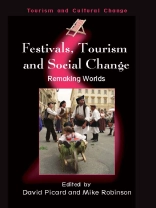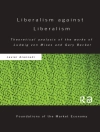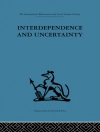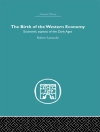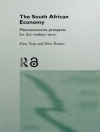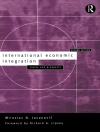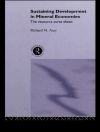This book explores the links between tourism and festivals and the various ways in which each mobilises the other to make social realities meaningful. Drawing upon a series of international cases, festivals are examined as ways of responding to various forms of crisis – social, political, economic – and as a way of re-making and re-animating spaces and social life. Importantly, this book locates festivals in the constantly changing, socio-economic and political contexts that they always operate in and respond to – contexts that are both historical and modern at the same time. Tourism is bound closely together with such contexts; feeding and challenging festivals with audiences that are increasingly transient and transnational. Tourism interrogates notions of ritual and tradition, shapes new spaces and creates, and renews, relationships between participants and observers. No longer can we dismiss tourists simply as value neutral and crass consumers of spectacle, nor tourism as some inevitable commercial force. Tourism is increasingly complicit in the festival processes of re-invention, and in forming new patterns of social existence.
สารบัญ
1. Remaking Worlds: Festivals, Tourism and Change – David Picard and Mike Robinson (Sheffield Hallam University)
2. La Cavalcata Sarda: Performing Identities in a Contemporary Sardinian Festival – Iride Azara (University of Derby) and David Crouch (University of Derby)
3. Gardening the Past and Being in the World: A Popular Celebration of the Abolition of Slavery in La Réunion – David Picard
4. Becoming All Indian: Gauchos, Pachamama Queens and Tourists in the Remaking of an Andean Festival – Patricia Mathews-Salazar (City University of New York)
5. The ‘Freedom of the Slaves to Walk the Streets’: Celebration, Spontaneity and Revelry versus Logistics at the Notting Hill Carnival – Angela Burr (London Metropolitan University)
6. The Making of Community Identity through Historic Festive Practice: The Case of Ashbourne Royal Shrovetide Football – Scott Mc Cabe (Sheffield Hallam University)
7. ‘Days of Radunica’: A Street Festival in the Croatian Town of Split – Anka Misetic and Ines Sabotic (Institute of Social Sciences Ivo Pilar, Croatia)
8. Enhancing Vitality or Compromising Integrity? Festivals, Tourism and the Complexities of Performing Culture – Melanie Smith and Kathryn Forest (ECOTEC)
9. Creating the ‘Rainbow Nation’: The National Women’s Art Festival in Durban, South Africa – Sabine Marschall (University of Kwa Zulu-Natal)
10. Kyrgyzstan’s Manas Epos Millennium Celebrations: Post-Colonial Resurgence of Turkic Culture and the Marketing of Cultural Tourism – Karen Thompson (University of Strathclyde), Peter Schofield (University of Salford), Nicola Foster, Gulnara Bakieva
11. The Camp Oven Festival and Australian Identity – Shirley Chappel and Gregory Loades (University of South Australia)
12. Christmas Markets in the Tyrolean Alps: Representing Regional Traditions in a Newly Created World of Christmas – Oliver Haid (University of Innsbruck)
13. The Placeless Festival: Identity and Place in the Post-Modern Festival – Nicola E. Mac Leod (University of Greenwich)
14. Gay and Lesbian Festivals: Tourism in the Change from Politics to Party – Howard L. Hughes (Manchester Metropolitan University)
15. Mobility, Diaspora and the Hybridisation of Festivity: The Case of the Edinburgh Mela – Elizabeth Carnegie (Sheffield University) and Melanie Smith (University of Greenwich)
16. Taking Quebec City: Protest, Carnival and Tourism at the Summit of the Americas – Kirsty Robertson (Queen’s University, Canada)
เกี่ยวกับผู้แต่ง
Mike Robinson is Professor of Tourism and Culture and Director of the Centre for Tourism and Cultural Change, Leeds Metropolitan University Leeds, UK.
